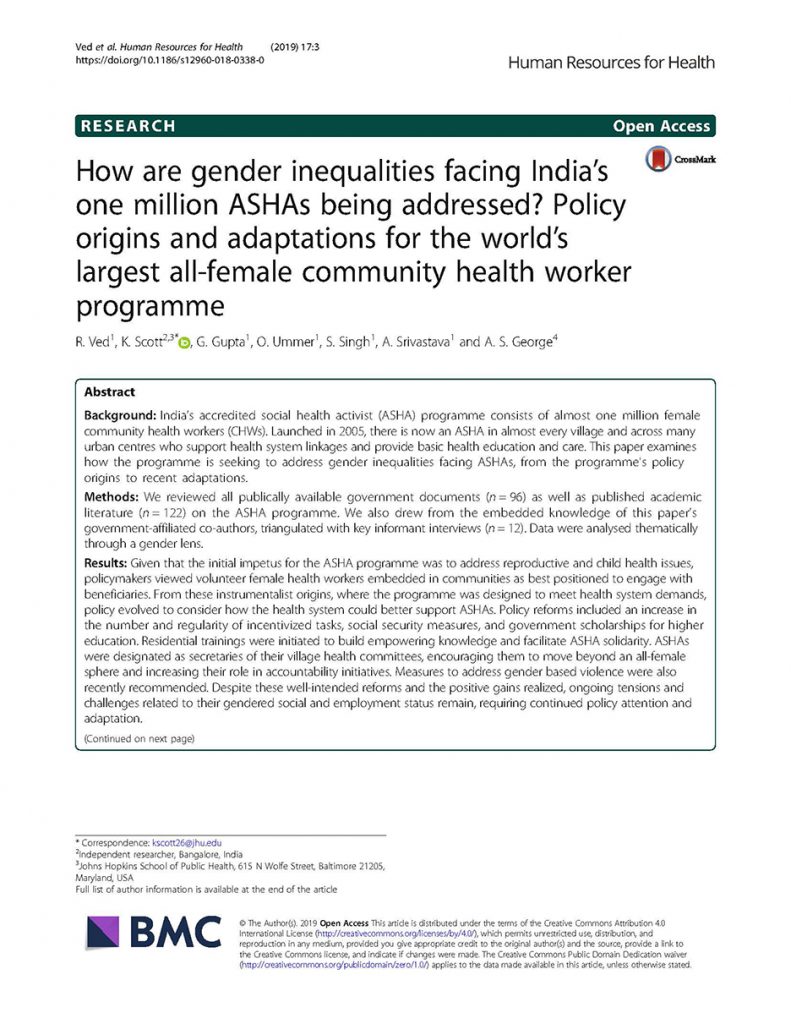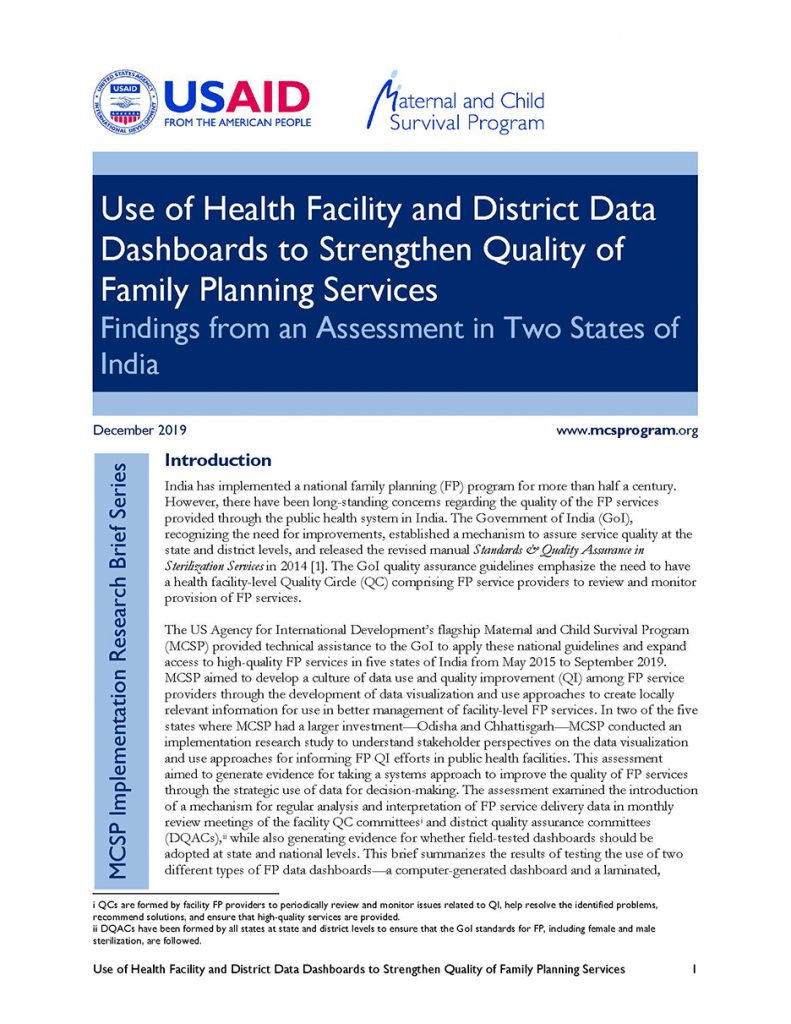
In five states of India, MCSP aimed to develop a culture of data use and quality improvement (QI) among family planning service providers through the development of data visualization and use approaches to create locally relevant information for use in better management of facility-level family planning services. In two of the five states where MCSP […]
Read More…
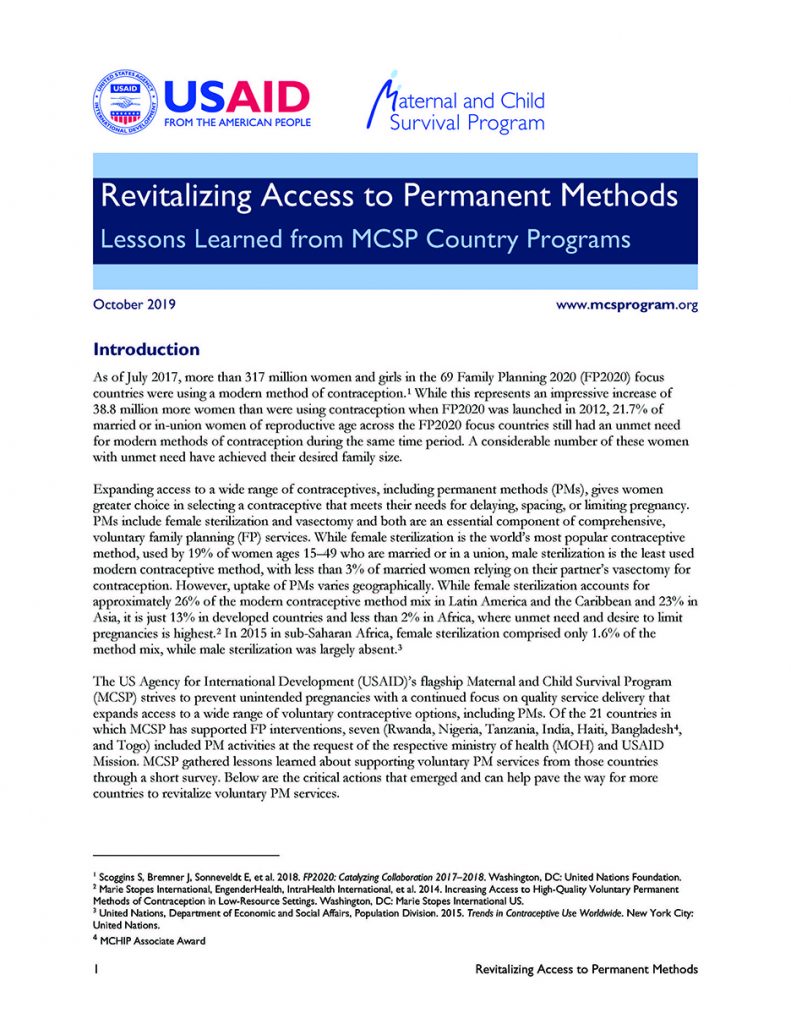
MCSP strives to prevent unintended pregnancies with a continued focus on quality service delivery that expands access to a wide range of voluntary contraceptive options, including permanent methods (PM). Of the 21 countries in which MCSP has supported FP interventions, seven (Rwanda, Nigeria, Tanzania, India, Haiti, Bangladesh, and Togo) included PM activities at the request […]
Read More…
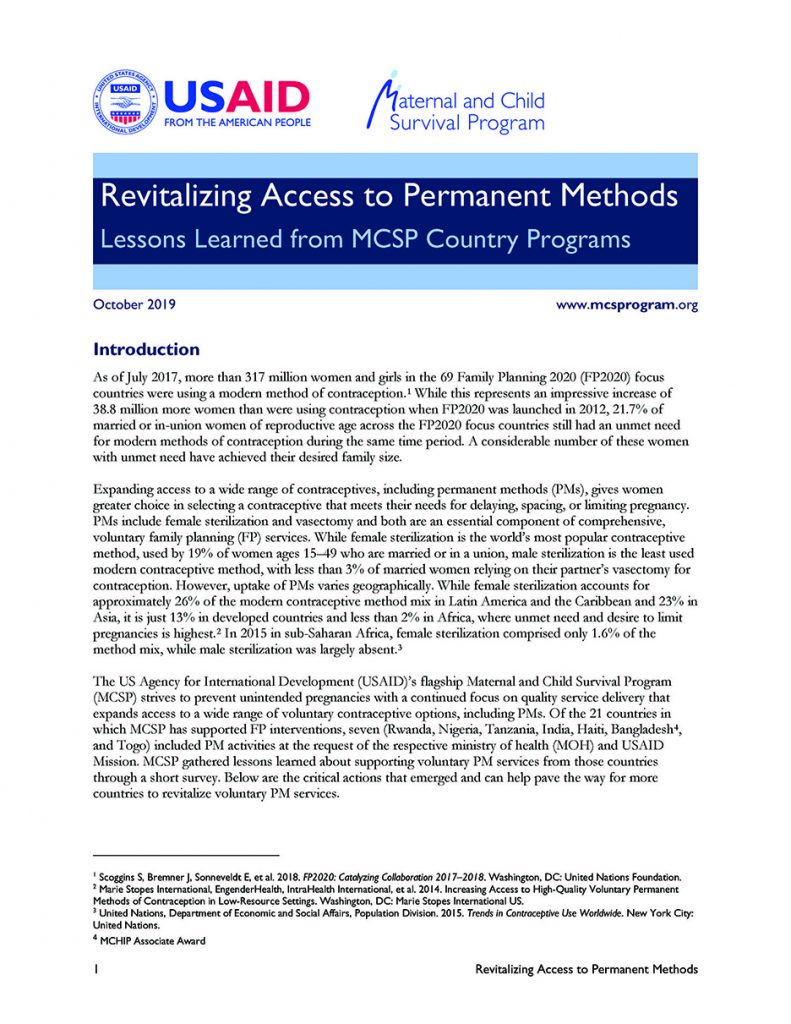
MCSP strives to prevent unintended pregnancies with a continued focus on quality service delivery that expands access to a wide range of voluntary contraceptive options, including permanent methods. Of the 21 countries in which MCSP has supported family planning interventions, seven (Rwanda, Nigeria, Tanzania, India, Haiti, Bangladesh, and Togo) included permanent method activities at the […]
Read More…
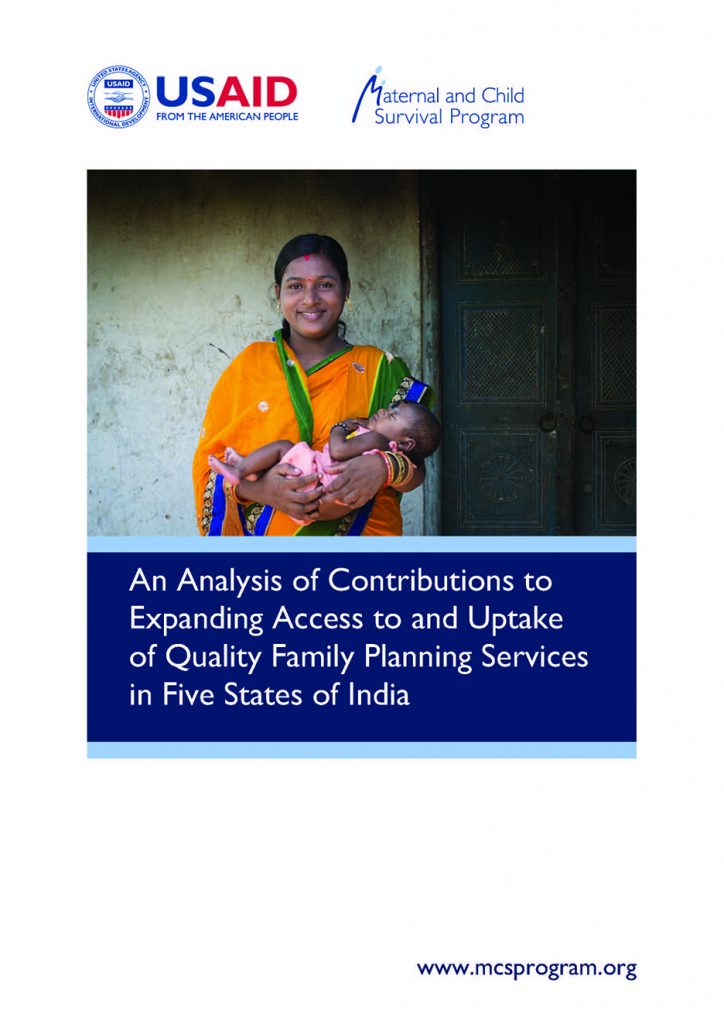
In partnership with the MoHFW, MCSP evaluated the impact of family planning interventions supported by the program in five states of India using a “Contribution Analysis” (CA) methodology to explain the results within the complex adaptive systems within which they were achieved. This report summarizes the programmatic achievements and implications and offers recommendations for future […]
Read More…
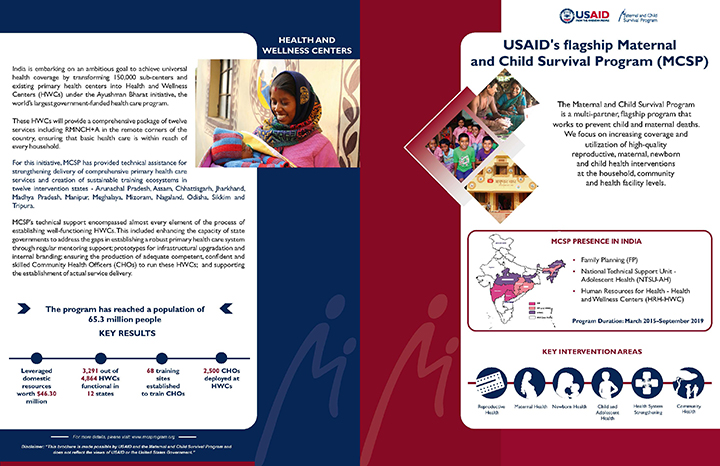
MCSP has been working in India since April 2015 to strengthen family planning (FP), adolescent health (AH), and health and wellness centers (HWCs). MCSP works to promote the expansion of the current basket of contraceptives available in India and strengthen the provision of quality FP services delivered through the public health system in five states […]
Read More…
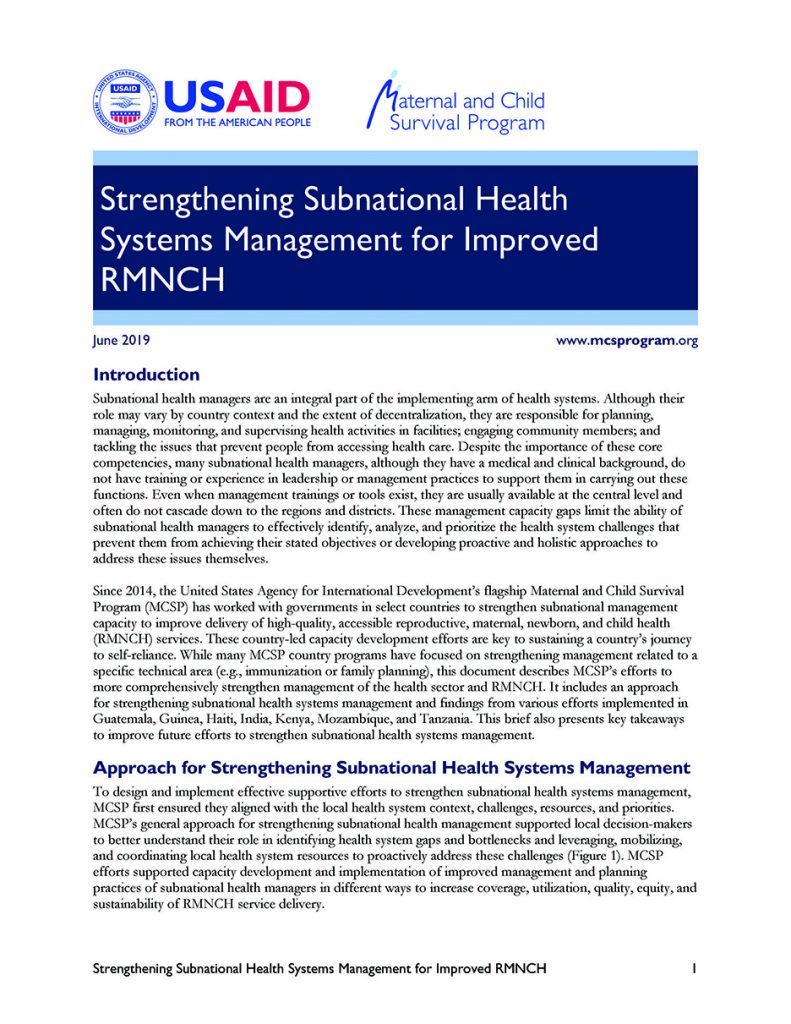
This brief describes MCSP’s efforts to more comprehensively strengthen management of the health sector and reproductive, maternal, newborn and child health (RMNCH). It includes an approach for strengthening subnational health systems management and findings from various efforts implemented in Guatemala, Guinea, Haiti, India, Kenya, Mozambique and Tanzania. It also presents key takeaways to improve future […]
Read More…
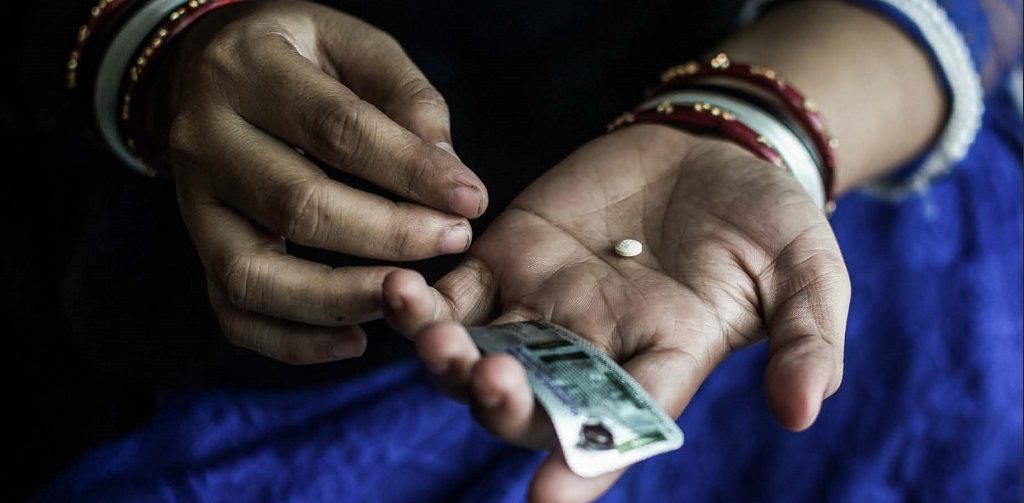
How does a young Indian mother become empowered? With knowledge about and access to family planning. […]
Read More…
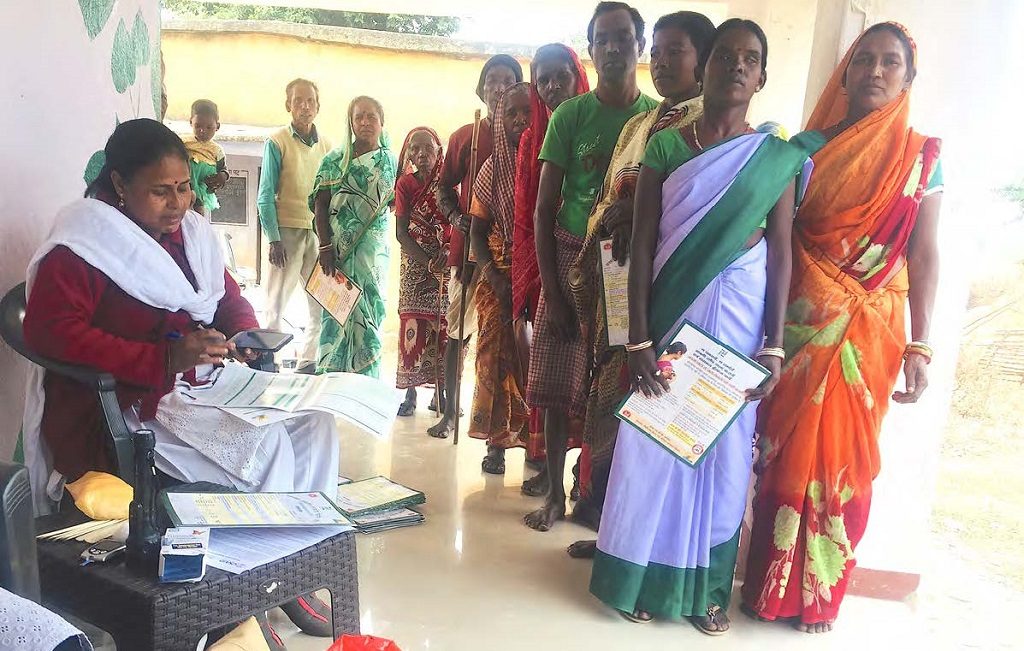
What do a bedridden mother, a married couple, and a 13-year-old yogi in northeastern India have in common? […]
Read More…
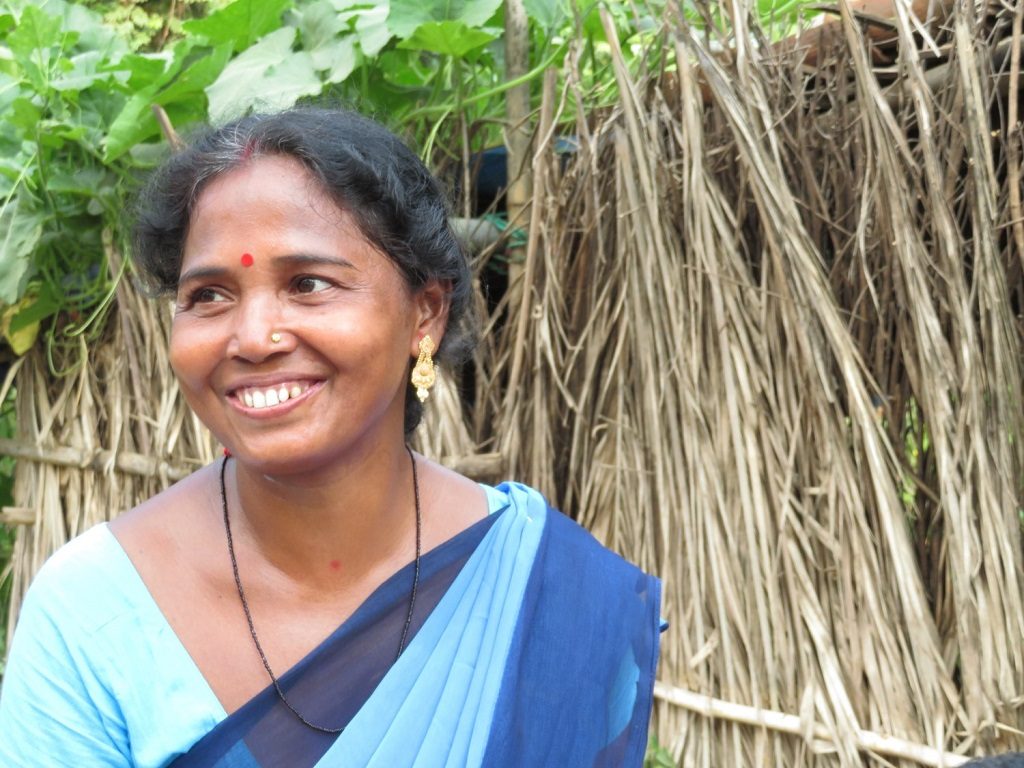
An MCSP study in India is using a healthcare service delivery model that links facility- and home-based care through a systematic approach. […]
Read More…






